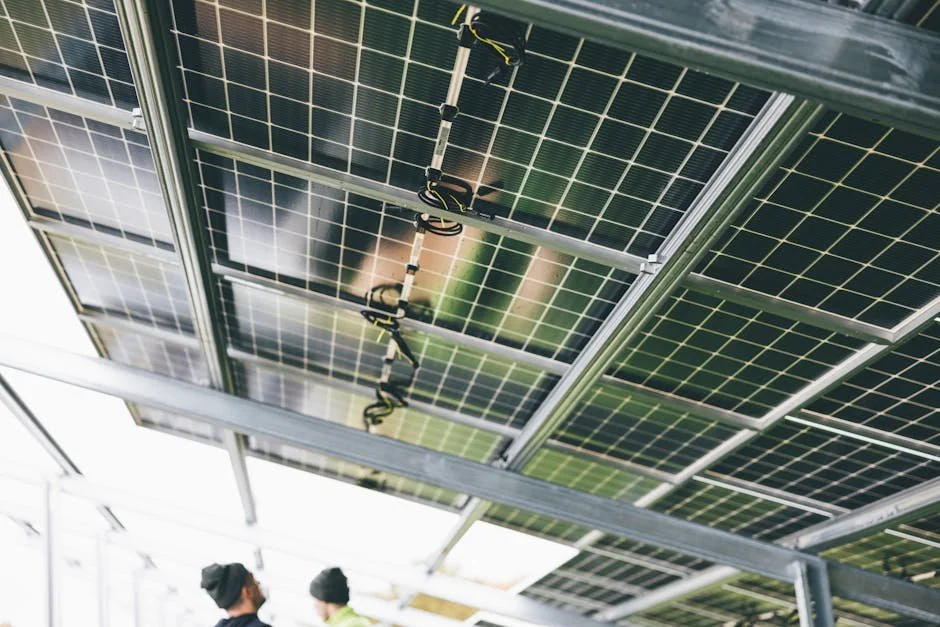Revolutionizing Marine Technology with State-of-the-Art Energy System Design
Introduction to Marine Technology
Marine technology involves various technologies to help us understand and explore the ocean. It includes underwater robots, sensors, and communication systems. These innovations allow researchers to study marine life and the ocean environment in ways never before possible.
Importance of Energy System Design in Marine Technology
Energy system design is crucial in marine technology as it determines how efficiently a vessel can operate. A well-designed energy system can lead to significant fuel savings, reduce emissions, and enhance overall performance. Here are a few key points highlighting the importance of energy system design in marine technology:
Efficient energy system design can result in substantial fuel savings for marine vessels, which is beneficial for both cost-effectiveness and environmental sustainability.
Proper energy system design can help reduce emissions, contributing to a cleaner marine environment and meeting stringent environmental regulations.
A well-thought-out energy system design can improve the overall performance and reliability of marine technology, ensuring smooth operations at sea.
Incorporating state-of-the-art technologies in energy system design can lead to innovative solutions that revolutionize the marine industry and set new standards for efficiency and sustainability.
Challenges in Marine Energy Systems
Marine energy systems face challenges due to the harsh conditions of the ocean environment. Corrosion is a significant issue as saltwater can deteriorate equipment quickly. Maintenance is also a concern, as it can be difficult and costly to repair or replace components in the open sea. Efficiency is another challenge, as converting wave or tidal energy into usable power efficiently remains a complex task. Moreover, integration with existing marine infrastructures and systems poses challenges to ensure seamless operation. Addressing these challenges is crucial for advancing marine energy systems.
Innovations in Energy System Design
Energy system design in marine technology has seen significant advancements in recent years. Cutting-edge technologies have been developed to enhance the efficiency and sustainability of energy systems used in marine vessels. These innovations aim to reduce fuel consumption, minimize emissions, and optimize overall performance. Notable developments include the integration of renewable energy sources, such as solar and wind power, into the energy systems of marine vessels. Additionally, advanced energy storage solutions, such as lithium-ion batteries, are being utilized to store and efficiently manage power onboard. These advancements in energy system design are revolutionizing the marine industry, making vessels more environmentally friendly and economically sustainable.
State-of-the-Art Technologies Used in Marine Energy Systems
State-of-the-art technologies are crucial in making marine energy systems efficient and sustainable. These cutting-edge advancements include sophisticated monitoring sensors, advanced control systems, and innovative energy storage solutions. Additionally, the integration of renewable energy sources like solar panels and wind turbines plays a significant role in reducing reliance on traditional fuel sources. By leveraging these state-of-the-art technologies, marine energy systems can operate more effectively, minimize environmental impact, and pave the way for a greener maritime industry.
Benefits of Advanced Energy Systems in Marine Technology
Advanced energy systems in marine technology offer several benefits. These systems improve fuel efficiency, reduce emissions, and enhance overall performance. By utilizing cutting-edge technology, marine vehicles can operate more sustainably while achieving optimal energy utilization.
Implementation of Energy System Design in Maritime Operations
Energy system design has revolutionized maritime operations by enhancing efficiency and sustainability. Maritime industries are increasingly implementing cutting-edge energy systems to power vessels, reduce emissions, and optimize operations. These systems utilize innovative technologies to harness renewable energy sources such as solar and wind power, decreasing reliance on traditional fuel sources. By incorporating energy system design, marine companies can minimize their environmental impact and improve cost-effectiveness in the long term.
Future Prospects of Energy System Design in Marine Technology
When it comes to energy system design in marine technology, the future looks promising. Advancements in technology are revolutionizing the way energy systems are designed for marine applications. Here are some key points to consider for the future prospects:
Innovative Solutions: Cutting-edge technologies are being developed to improve energy efficiency and sustainability in marine vessels.
Renewable Energy Integration: The integration of renewable energy sources such as solar and wind power is being explored to reduce reliance on traditional fuel sources.
Environmental Impact: Energy system designs are evolving to minimize the environmental impact of marine operations, focusing on reducing emissions and preserving marine ecosystems.
Efficiency and Performance: Future designs aim to enhance the efficiency and performance of energy systems in marine technology, ensuring optimal operation and cost-effectiveness.
Sustainability and Environmental Impact of Marine Energy Systems
Marine energy systems present a promising solution to reduce the environmental impact of traditional energy sources. By harnessing the power of the ocean, these systems can generate electricity while minimizing harm to the environment. In comparison to fossil fuels, marine energy systems offer a sustainable and renewable energy source that can help combat climate change. Key benefits of marine energy systems include:
Reduced greenhouse gas emissions
Minimal disturbance to marine ecosystems
Diverse potential locations for implementation
These systems have the potential to revolutionize the marine industry by providing a cleaner and more sustainable source of power.
Conclusion: The Future of Marine Technology and Energy System Design
In conclusion, the future of marine technology looks bright with the advancements in energy system design. The integration of state-of-the-art technology in marine vessels is enhancing efficiency and sustainability. This evolution not only benefits the marine industry but also contributes to a greener environment. As we move forward, we can expect to see more innovative solutions that push the boundaries of what is possible in marine technology and energy system design.

